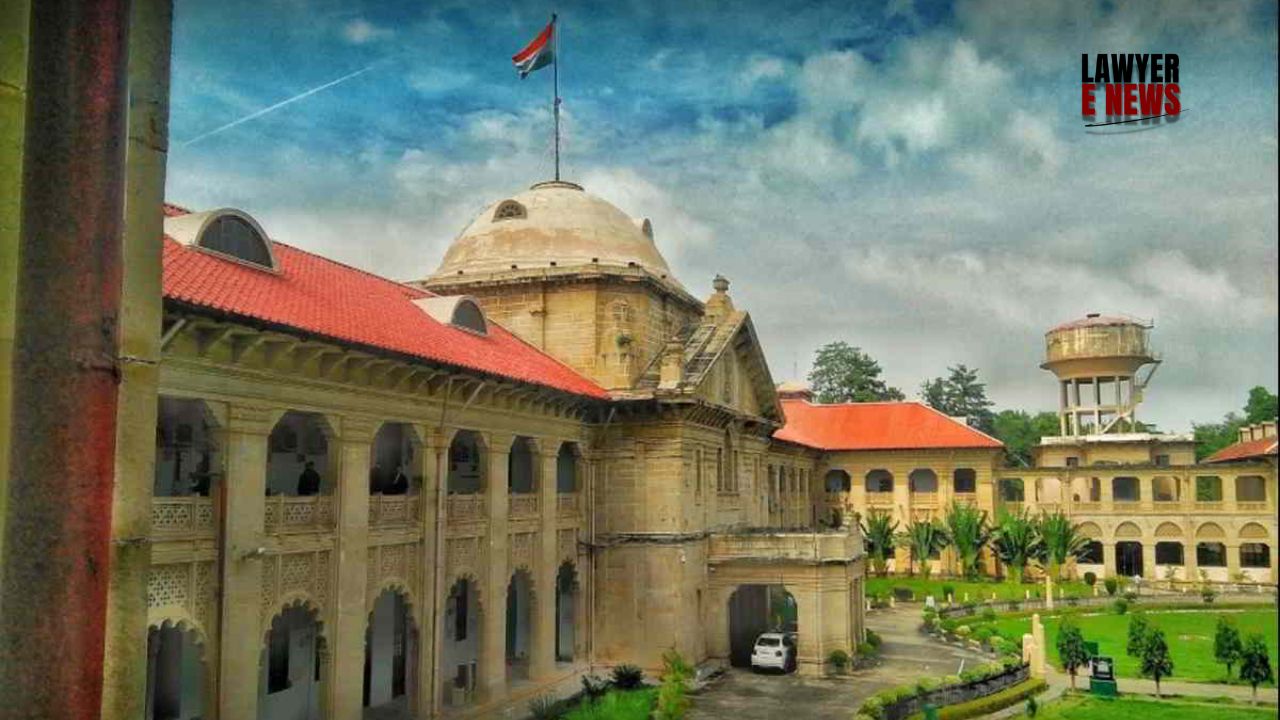-
by Admin
15 February 2026 5:35 AM



In the recent judgement, the Allahabad High Court at Lucknow, in the case of Pitamber vs. Ram Milan, upheld the concurrent findings of the lower courts, establishing that land claimed under Section 9 of the U.P. Zamindari Abolition & Land Reforms Act, 1950 need not be directly adjacent to a house to be considered appurtenant. The court ruled in favor of Ram Milan, the plaintiff, confirming his right over the land in dispute as "sahan" land used for beneficial enjoyment of his residence. This judgment touches upon key legal principles of land appurtenance, easementary rights, and adverse possession, and sets a precedent in interpreting Section 9 of the Act.
The dispute began in 1982 when Ram Milan, the plaintiff, filed a suit for a permanent injunction against Pitamber, the defendant, asserting that the disputed land was his "sahan" land. He claimed continuous possession and use of this land since the time of his ancestors, including agricultural use. Pitamber, who had constructed a thatch on the land, contested this, asserting his right based on a purchase from the previous zamindar. The trial court and the first appellate court ruled in favor of Ram Milan, leading to this second appeal.
The court explored whether land not directly adjoining a house could still be considered appurtenant under Section 9. The defendant argued that since the land was not adjacent to the plaintiff's house but was across a public path, it couldn't be deemed appurtenant.
The court clarified the term "appurtenant," indicating it signifies land used for the beneficial enjoyment of a house. Citing cases like Ram Sukh vs. Gaya Din and Special Manager Court of Wards Balrampur Estate vs. Shyam Lal, it held that "land appurtenant to a residential house need not be actually adjoining the house" as long as it is used for the enjoyment of the house.
A significant aspect of the judgment was the clarification that easementary rights and adverse possession are mutually exclusive. Easementary rights involve using another's property for the benefit of one's own property, while adverse possession requires actual, exclusive possession.
The court cited Bachhaj Nahar vs. Nilima Mandal to emphasize that easementary rights can pertain to various uses like a right of way or drainage but require a claim over another's property. Adverse possession, on the other hand, necessitates proving continuous, undisturbed possession that is hostile to the true owner’s rights.
The defendant failed to provide sufficient evidence to substantiate his claim of purchasing the land from the previous zamindar. There was inconsistency in the defendant's evidence regarding the seller’s identity, and no documentary proof of the alleged purchase was produced.
The plaintiff successfully demonstrated continuous possession and use of the land, including testimonies affirming that the land was used for keeping animals and agricultural purposes.
The court detailed the examination of evidence presented by both parties. The plaintiff, through witness testimonies and lack of contradiction in the evidence, proved that the disputed land was used as "sahan" land for various purposes, establishing it as appurtenant under Section 9 of the U.P. Zamindari Abolition & Land Reforms Act.
The defendant's argument that the land was recorded as "talab" (pond) and thus belonged to the Gaon Sabha was rejected, as it was raised only during the appellate stage, not in the trial court. The court emphasized that changing the nature of the defense at the appellate stage without proper grounds was not permissible.
The court reiterated that concurrent findings of fact by the lower courts should not be disturbed unless found to be perverse. It highlighted that the lower courts had properly assessed the evidence and arrived at a reasoned conclusion.
The Allahabad High Court's decision reinforces the principle that land can be considered appurtenant to a house even if it is not immediately adjacent, provided it is used for the beneficial enjoyment of the house. The court upheld the lower courts' judgments, confirming the plaintiff's title and possession over the land in dispute and dismissed the appeal, thereby setting an important precedent in interpreting Section 9 of the U.P. Zamindari Abolition & Land Reforms Act.
Date of Decision: 12.09.2024
Pitamber vs. Ram Milan
